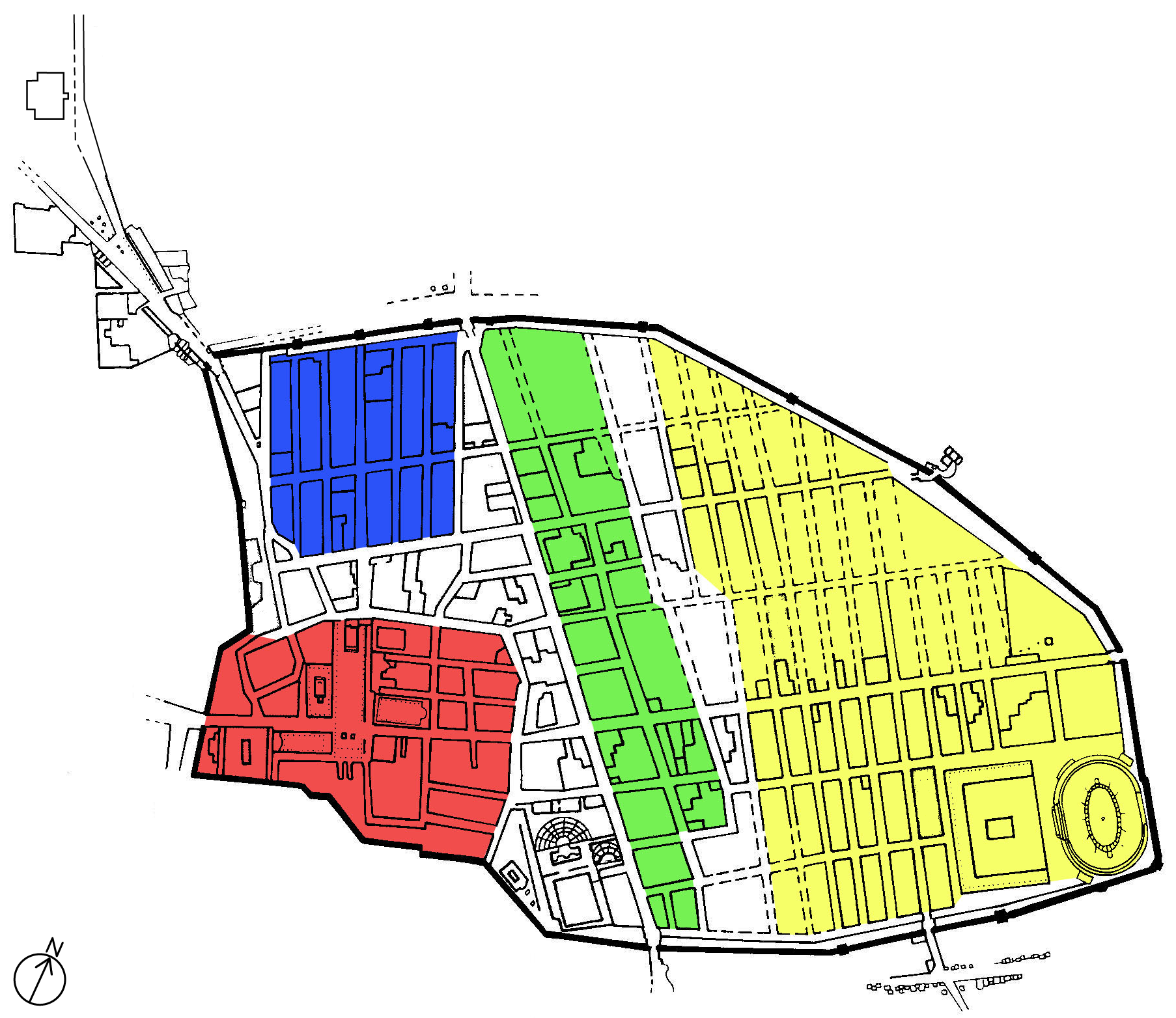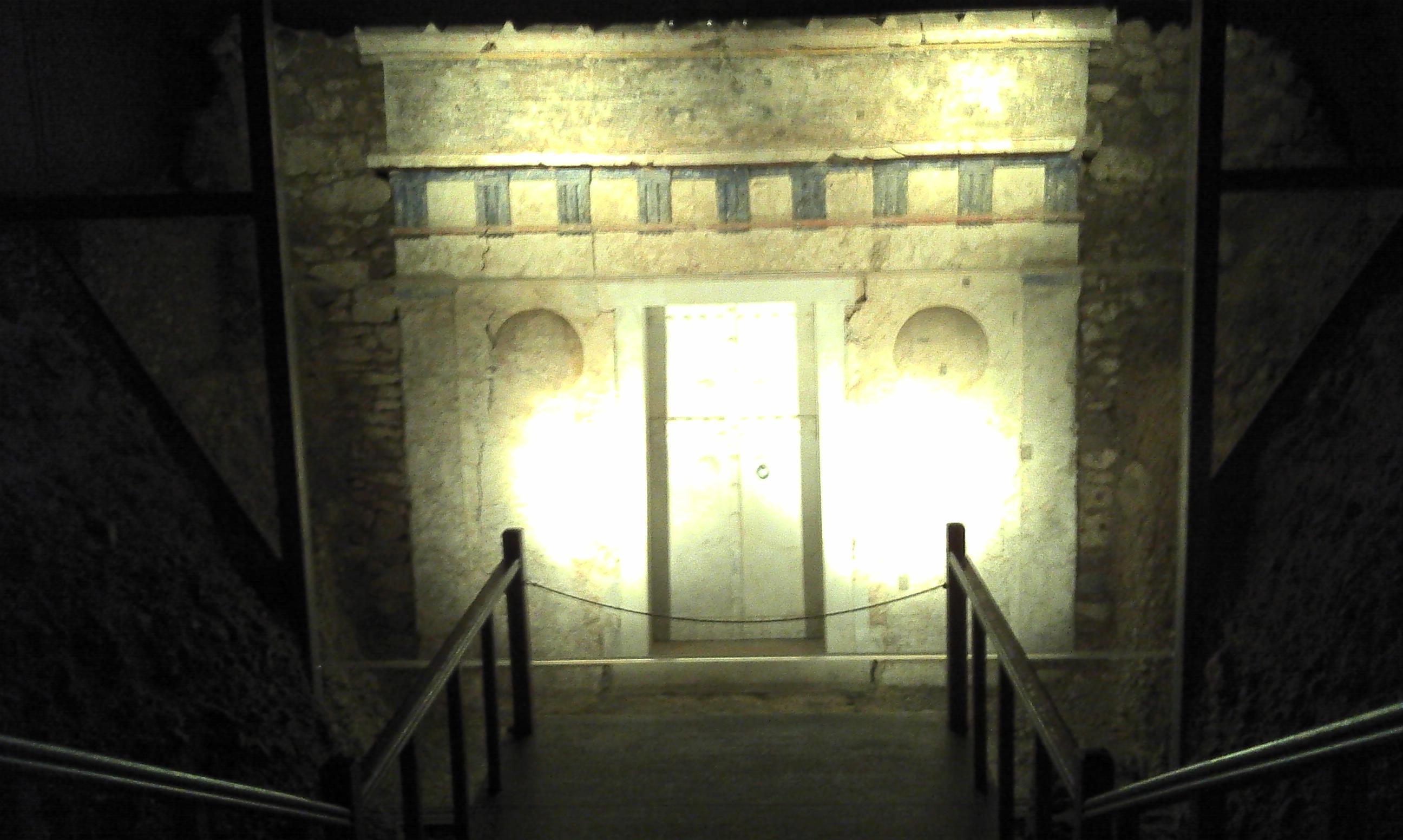|
Stateira II
Stateira (; died 323 BC), possibly also known as Barsine, was the daughter of Stateira and Darius III of Persia. After her father's defeat at the Battle of Issus, Stateira and her sisters became captives of Alexander of Macedon. They were treated well, and she became Alexander's second wife at the Susa weddings in 324 BC. At the same ceremony Alexander also married her cousin, Parysatis, daughter of Darius' predecessor. After Alexander's death in 323 BC, Stateira was killed by Alexander's other wife, Roxana. Name Scholars have debated her name. In his list of marriages that occurred at Susa, Arrian (c. 86 – after 146), calls her "Barsine". She is commonly confused with another Barsine who was also held captive by Alexander around the same period. Historian William Woodthorpe Tarn asserts her official name was "Barsine", but she was likely commonly called "Stateira".Tarn (2002), p. 334. Tarn cites other instances of confusion, noting that by the ... [...More Info...] [...Related Items...] OR: [Wikipedia] [Google] [Baidu] |
The Weddings At Susa, Alexander To Stateira And Hephaistion To Drypetis (late 19th Century Engraving)
''The'' is a grammatical article in English, denoting nouns that are already or about to be mentioned, under discussion, implied or otherwise presumed familiar to listeners, readers, or speakers. It is the definite article in English. ''The'' is the most frequently used word in the English language; studies and analyses of texts have found it to account for seven percent of all printed English-language words. It is derived from gendered articles in Old English which combined in Middle English and now has a single form used with nouns of any gender. The word can be used with both singular and plural nouns, and with a noun that starts with any letter. This is different from many other languages, which have different forms of the definite article for different genders or numbers. Pronunciation In most dialects, "the" is pronounced as (with the voiced dental fricative followed by a schwa) when followed by a consonant sound, and as (homophone of the archaic pronoun ''thee' ... [...More Info...] [...Related Items...] OR: [Wikipedia] [Google] [Baidu] |
Susa
Susa ( ) was an ancient city in the lower Zagros Mountains about east of the Tigris, between the Karkheh River, Karkheh and Dez River, Dez Rivers in Iran. One of the most important cities of the Ancient Near East, Susa served as the capital of Elam and the winter capital of the Achaemenid Empire, and remained a strategic centre during the Parthian Empire, Parthian and Sasanian Empire, Sasanian periods. The site currently consists of three archaeological mounds, covering an area of around . The city of Shush, Iran, Shush is located on the site of ancient Susa. Name The name Susa is of Elamiate origin and has appeared in many languages: *Middle *Middle and Neo- *Neo-Elamite language, Elamite and Achaemenid Empire, Achaemenid *Achaemenid Empire, Achaemenid * * * * or *New * Literary references Susa was one of the most important cities of the Ancient Near East. In Historiography, historic literature, Susa appears in the very earliest Sumerian records: for exa ... [...More Info...] [...Related Items...] OR: [Wikipedia] [Google] [Baidu] |
Oliver Stone
William Oliver Stone (born ) is an American filmmaker. Stone is an acclaimed director, tackling subjects ranging from the Vietnam War and American politics to musical film, musical Biographical film, biopics and Crime film, crime dramas. He has received List of awards and nominations received by Oliver Stone, numerous accolades including three Academy Awards, a BAFTA Award, a Primetime Emmy Award, and five Golden Globe Awards. Stone was born in New York City and later briefly attended Yale University. In 1967, Stone enlisted in the United States Army during the Vietnam War. He served from 1967 to 1968 in the 25th Infantry Division (United States), 25th Infantry and 1st Cavalry Division (United States), 1st Cavalry Divisions and was twice wounded in action. For his service, he received military honors including a Bronze Star Medal, Bronze Star with "V" Device for valor, Purple Heart with Oak Leaf Cluster (to denote two wounds), an Air Medal and the Combat Infantryman Badge. His se ... [...More Info...] [...Related Items...] OR: [Wikipedia] [Google] [Baidu] |
Alexander (2004 Film)
''Alexander'' is a 2004 epic historical drama film based on the life of the ancient Macedonian general and king Alexander the Great. It was co-written and directed by Oliver Stone and starred Colin Farrell. The film's original screenplay was derived in part from the book ''Alexander the Great'', published in 1973 by the University of Oxford historian Robin Lane Fox. After release, while it performed well in Europe, the American critical reaction was mixed to negative. It grossed $167 million worldwide against a $155 million budget, thus making it a commercial failure. Four versions of the film exist, the initial theatrical cut and three home video director's cuts: the "Director's Cut" in 2005, the "Final Cut" in 2007, and the "Ultimate Cut" in 2014. The two earlier DVD versions of ''Alexander'' ("director's cut" version and the theatrical version) sold over 3.5 million copies in the United States. Oliver Stone's third version, ''Alexander Revisited: The Final Cut'' (2007), ... [...More Info...] [...Related Items...] OR: [Wikipedia] [Google] [Baidu] |
Pompeii
Pompeii ( ; ) was a city in what is now the municipality of Pompei, near Naples, in the Campania region of Italy. Along with Herculaneum, Stabiae, and Villa Boscoreale, many surrounding villas, the city was buried under of volcanic ash and pumice in the eruption of Mount Vesuvius in 79 AD. Largely preserved under the ash, Pompeii offers a unique snapshot of Culture of ancient Rome, Roman life, frozen at the moment it was buried, as well as insight into ancient urban planning. It was a wealthy town of 10,000 to 20,000 residents at the time it was destroyed. It hosted many fine public buildings and luxurious private houses with lavish decorations, furnishings and artworks, which were the main attractions for early excavators; subsequent excavations have found hundreds of private homes and businesses reflecting various architectural styles and social classes, as well as numerous public buildings. Organic remains, including wooden objects and human bodies, were interred in the as ... [...More Info...] [...Related Items...] OR: [Wikipedia] [Google] [Baidu] |
Wedding Of Alexander The Great And Barzine (Stateira) From Lower Level Triclinium Of House Of The Golden Bracelet Pompeii
A wedding is a ceremony in which two people are united in marriage. Wedding traditions and customs vary greatly between cultures, ethnicity, ethnicities, Race (human categorization), races, religions, Religious denomination, denominations, Country, countries, social classes, and sexual orientations. Most wedding ceremonies involve an exchange of marriage vows by a couple; a presentation of a gift (e.g., an offering, rings, a symbolic item, flowers, money, or a dress); and a public proclamation of marriage by an authority figure or Celebrant (Australia), celebrant. Special wedding garments are often worn, and the ceremony is sometimes followed by a wedding reception. Music, poetry, prayers, or readings from religious texts or literature are also commonly incorporated into the ceremony, as well as Wedding superstitions, superstitious customs. Common elements across cultures Some cultures have adopted the traditional Western custom of the white wedding, in which a bride wear ... [...More Info...] [...Related Items...] OR: [Wikipedia] [Google] [Baidu] |
Plutarch
Plutarch (; , ''Ploútarchos'', ; – 120s) was a Greek Middle Platonist philosopher, historian, biographer, essayist, and priest at the Temple of Apollo (Delphi), Temple of Apollo in Delphi. He is known primarily for his ''Parallel Lives'', a series of biographies of illustrious Greeks and Romans, and ''Moralia'', a collection of essays and speeches. Upon becoming a Roman citizen, he was possibly named Lucius Mestrius Plutarchus (). Family Plutarch was born to a prominent family in the small town of Chaeronea, about east of Delphi, in the Greek region of Boeotia. His family was long established in the town; his father was named Autobulus and his grandfather was named Lamprias. His brothers, Timon and Lamprias, are frequently mentioned in his essays and dialogues, which speak of Timon in particular in the most affectionate terms. Studies and life Plutarch studied mathematics and philosophy in Athens under Ammonius of Athens, Ammonius from AD 66 to 67. He attended th ... [...More Info...] [...Related Items...] OR: [Wikipedia] [Google] [Baidu] |
Alexander IV Of Macedon
Alexander IV (Greek: ; August 323 BC – Late summer 309 BC), sometimes erroneously called Aegus in modern times, was the posthumous son of Alexander the Great (Alexander III of Macedon) by his wife Roxana of Bactria. As his father's only surviving legitimate child, Alexander IV inherited the throne of the Macedonian Empire after him, however he was murdered in his early teens, never wielding actual power. Birth Alexander IV was the son of Alexander the Great (a Macedonian Greek) and Alexander's wife Roxana (a Sogdian). He was their second child together and the only one to survive infancy. Because Roxana was pregnant when Alexander the Great died on 11 June 323 BC and the sex of the baby was unknown, there was dissension in the Macedonian army regarding the order of succession. While the infantry supported Alexander the Great's half-brother Philip III (who had some unknown cognitive disability present throughout his life), the chiliarch Perdiccas, commander of ... [...More Info...] [...Related Items...] OR: [Wikipedia] [Google] [Baidu] |
Perdiccas
Perdiccas (, ''Perdikkas''; 355BC – 320BC) was a Macedonian general, successor of Alexander the Great, and the regent of Alexander's empire after his death. When Alexander was dying, he entrusted his signet ring to Perdiccas. Initially the most pre-eminent of the successors, Perdiccas effectively ruled Alexander's increasingly unstable empire from Babylon for three years until his assassination, as the kings he ruled for were incapable. Perdiccas was born to Macedonian nobility. A supporter, (bodyguard) and (elite cavalry commander) of Alexander, he took part in Alexander's campaign against the Achaemenid Persian Empire, distinguishing himself at the battles of Thebes and Gaugamela, and followed Alexander into India. When Alexander died in 323BC, Perdiccas rose to become supreme commander of the imperial army, as well as regent for Alexander's vast empire, ruling on behalf of Alexander's intellectually disabled heir, King Philip III Arrhidaeus and Alexander's i ... [...More Info...] [...Related Items...] OR: [Wikipedia] [Google] [Baidu] |
Achaemenid Empire
The Achaemenid Empire or Achaemenian Empire, also known as the Persian Empire or First Persian Empire (; , , ), was an Iranian peoples, Iranian empire founded by Cyrus the Great of the Achaemenid dynasty in 550 BC. Based in modern-day Iran, it was the List of largest empires#Timeline of largest empires to date, largest empire by that point in history, spanning a total of . The empire spanned from the Balkans and ancient Egypt, Egypt in the west, most of West Asia, the majority of Central Asia to the northeast, and the Indus Basin, Indus Valley of South Asia to the southeast. Around the 7th century BC, the region of Persis in the southwestern portion of the Iranian plateau was settled by the Persians. From Persis, Cyrus rose and defeated the Medes, Median Empire as well as Lydia and the Neo-Babylonian Empire, marking the establishment of a new imperial polity under the Achaemenid dynasty. In the modern era, the Achaemenid Empire has been recognised for its imposition of a succ ... [...More Info...] [...Related Items...] OR: [Wikipedia] [Google] [Baidu] |
Artaxerxes III Of Persia
Ochus ( ), known by his dynastic name Artaxerxes III ( ; ), was King of Kings of the Achaemenid Empire from 359/58 to 338 BC. He was the son and successor of Artaxerxes II and his mother was Stateira. Before ascending the throne Artaxerxes was a satrap and commander of his father's army. Artaxerxes came to power after one of his brothers was executed, another committed suicide, the last murdered and his father, Artaxerxes II died. Soon after becoming king, Artaxerxes murdered all of the royal family to secure his place as king. He started two major campaigns against Egypt. The first campaign failed, and was followed up by rebellions throughout the western part of his empire. During the second invasion, Artaxerxes finally defeated Nectanebo II, the Pharaoh of Egypt, bringing the country back into the Persian fold after six decades. In Artaxerxes' later years, Philip II of Macedon's power was increasing in Greece, where he tried to convince the Greeks to revolt against the Achaeme ... [...More Info...] [...Related Items...] OR: [Wikipedia] [Google] [Baidu] |
Hephaestion
Hephaestion ( ''Hēphaistíōn''; c. 356 BC – 324 BC), son of Amyntor, was an ancient Macedonian nobleman of probable "Attic or Ionian extraction" and a general in the army of Alexander the Great. He was "by far the dearest of all the king's friends; he had been brought up with Alexander and shared all his secrets."Curtius 3.12.16 This relationship lasted throughout their lives, and was compared, by others as well as themselves, to that of Achilles and Patroclus. His military career was distinguished. A member of Alexander the Great's personal bodyguard, he went on to command the Companion cavalry and was entrusted with many other tasks throughout Alexander's ten-year campaign in Asia, including diplomatic missions, the bridging of major rivers, sieges and the foundation of new settlements. Besides being a soldier, engineer and diplomat, he corresponded with the philosophers Aristotle and Xenocrates and actively supported Alexander in his attempts to ... [...More Info...] [...Related Items...] OR: [Wikipedia] [Google] [Baidu] |









